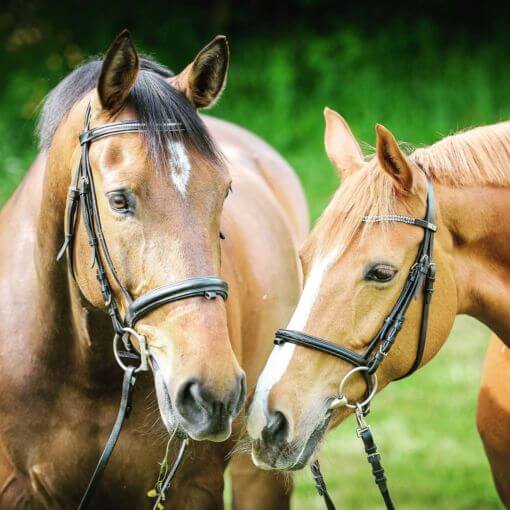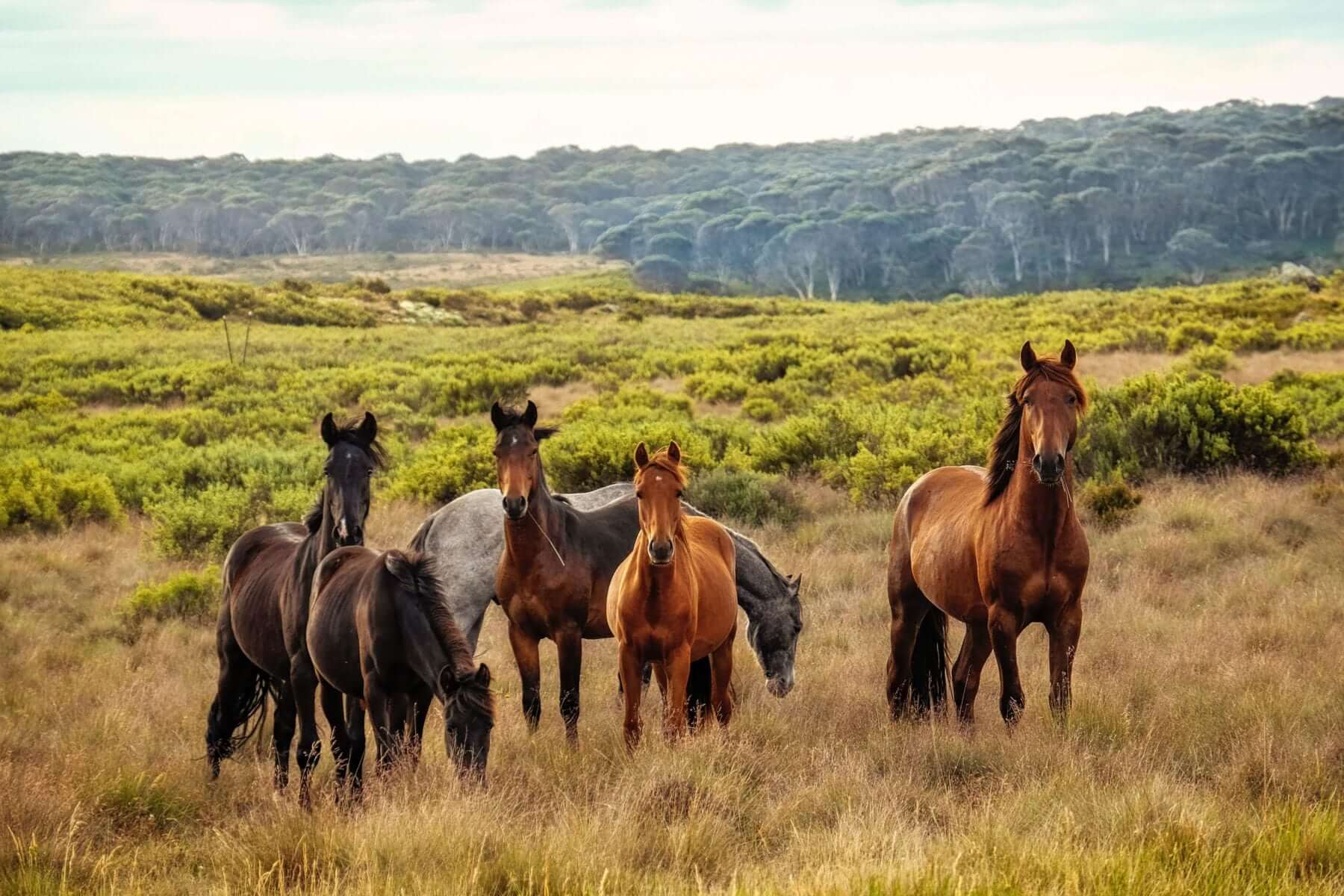Aging hikers would benefit from hiking with horses. In fact, anyone who cannot walk for extended periods of times or up to certain elevations but would like to experience hiking could do so with horses. These people may include disabled, young or aging hikers. No, hiking with horses isn’t a painless experience: stiffness and pain are normal side effects. However, if you’re recovering from a hip replacement and want to make it up that mountain you’ve always wanted to hike, horses are the way to go.

When planning for your journey, think about the typical horse riding supplies, but also consider what you’d need on a typical hike. The benefit of hiking with horses is that you can rely on him or her to help carry everything. You’ll need to think about what you’ll need for your horse, your clothing, cooking equipment, repair equipment, medical items, and other things you’d typically need on a hike. First of all, your horses will need a few things. This includes stuff to fulfill their needs and yours during horseback riding.
Unfortunately, your horse cannot hike just anywhere. You’ll need to find trails that are, first of all, allowed to be traveled by horses. Not all trails are free for horse use. Check your trail’s regulations before planning your journey. Places that are typically available for equestrian use are rail trails, bridle paths, and long-distance trails. But, also think about the path itself when planning a trip. Don’t take your horse where you’ll find erosion, invasive plants, lots of hikers, or plenty of wildlife.
You can hike with your horses year round depending on the weather and the terrain. Of course, the ideal weather is preferred yet not realistic. Check out the weather and plan accordingly. Think about if you’d like to hike in the pouring rain, deep snow, or blistering heat. If you would say no to any of these, your horse would probably say the same if he or she could speak. Hiking with horses can be extremely rewarding if you do it right. You’ll need the right supplies for both you and your horses for a comfortable experience Just as it’s best to plan your trip for the right time and terrain. Anyone can hike whether it’s on two legs or horseback.
What Supplies Are Needed To Hike With Your Horse?

When planning for your journey, think about the typical horse riding supplies, but also consider what you’d need on a typical hike. The benefit of hiking with horses is that you can rely on him or her to help carry everything. You’ll need to think about what you’ll need for your horse, your clothing, cooking equipment, repair equipment, medical items, and other things you’d typically need on a hike. First of all, your horses will need a few things. This includes stuff to fulfill their needs and yours during horseback riding.
-
Saddle and Halter
This is part of the basics. When horse riding, unless you plan on an uncomfortable bare-back ride, you’ll need a saddle. Get one that fits your horse and you comfortably. Halters are also a necessity. Make sure it fits snuggly but not too tight as your horse will be wearing it for the duration of your hike. -
Lead Rope, Panniers, and Tie Down Ropes
These are also necessities. It’s likely that you’ll want to walk for at least a small part of your journey. A lead rope will allow you to walk and guide your horse at the same time. Panniers are definitely a necessity for carrying supplies that your horse or you will need during your hike. Make sure it fits your horse comfortably and is balanced. Finally, tie-down ropes are for helping you mount, dismount, and guide your horse. Tie it just right to allow you better control while allowing for a comfortable experience for your horse. -
Bridle
If your horse is a true bridle horse, get a good bridle that your horse is comfortable with. This gives you more control during your journey and helps for guiding. -
Cinch
A cinch or girth is a piece of equipment that helps keep your saddle in place on your horse. It typically passes under his or her barrel and attaches to the saddle on both sides of leather straps known as billets. -
Containment System
A good containment system will keep your horse safely in camp. When you’re ready to rest and relax, you don’t want your horse taking off. So, think ahead and bring along hobbles or a picket rope. OK, I know hobbling a horse sounds awful, but it really isn’ All it requires is a rope tied around two or more of your horse’s legs which keeps them from taking long strides away from camp. A picket line is another good option. In this, you stretch a line between two trees which you then tie to your horses. Just make sure your halters, lead ropes, picket-line ropes, and knots are all strong and durable. -
Hoof Pick and Shoeing Kit
Your horse won’t appreciate rocks and other debris getting stuck in his or her hooves. This is what hoof picks are for! They’re little-hooded tools made of metal which are used to clean hooves. While we’re on the subject of hooves, a good shoeing kit wouldn’t hurt if you brought that along. In the event that something happens to his or her “shoes,” you can put new ones on or fix the old ones. -
Grooming Supplies
If you’re hiking in the woods or a field with a lot of briars, your horse might end up coated head to hoof in a mat of things you don’t want to be stuck to your clothes. Save yourself the discomfort and bring some good grooming supplies to get your horse cleaned up. -
Food and Water
Horses like to eat and drink too. They aren’t real picky and will probably eat a lot of the vegetation on your hike. But, if you’re visiting a spot where there is little vegetation, your horse would appreciate some store-bought horse food. Also, your horses can pick up a lot of the same nasty parasites you can from drinking contaminated water. So, bring a water bowl and purifying tablets. -
First Aid Kit
Sometimes horses stumble, get into a patch of nasty and painful thorns, or receive some sort of life-threatening injury. This could leave you without a ride. Prepare for the worst: prepare a horse first aid kit. This may include large gauze, tape, bandages, salve, antibiotic ointment, and more! -
Insect Repellent
If you own horses, you likely know how prone they are to being bug magnets. Nor do they appreciate it. Bring along some insect repellent for your horses, and they’ll appreciate it. -
Repair Kit
No matter what quality items you purchase, you might need to repair a few things. So, plan accordingly. Bring along a kit with leather, laces, a leather punch, sewing needle, dental floss, duct tape, vice grips, bailing wire, and extra parts for your stove which I will mention later.
Other Items You Will Need For Yourself When You Go Hiking With Your Horse
-
Clothing
Dress appropriately for hiking with horses. This means wearing an inner layer, an insulating layer, and a protective layer, depending on where you’re going. Inner layers include synthetic underwear, wool socks, or a swimsuit. Insulating layers include jackets, vests, wool shirts, sweaters, pants, t-shirts, wool socks (MULTIPLE PAIRS), stocking hats, and gloves. Protective layers include windbreakers, ponchos, and, of course, a cowboy hat for protection from the sun! -
Food and Water
You’ll need to eat and drink on your hike. Bring food that is light, nutrient-rich, and won’t degrade quickly. While you’re at it, bring a water purification system, water container, and clean water if you can. Some things you might want to bring to cook include a small stove, matches, fuel, funnel, pots, pans, cups, spoons, and corkscrews. -
First Aid Kit
A good first aid kit will allow you to tend to every simple injury and then some. It should include gauze roles, chapstick, sunblock, bandages, anti-acid tablets, ace bandages, butterfly closures, safety pins, aspirin, first aid tape, first aid book, and any personal medications. -
Other
Other things you’ll need on your hike include a sleeping bag, tent, compass, matches, fire starter, knife, whistle, cord, map, and any miscellaneous items you see yourself needing on the trail (i.e. axe).
Where Can You Hike With Horses?
Unfortunately, your horse cannot hike just anywhere. You’ll need to find trails that are, first of all, allowed to be traveled by horses. Not all trails are free for horse use. Check your trail’s regulations before planning your journey. Places that are typically available for equestrian use are rail trails, bridle paths, and long-distance trails. But, also think about the path itself when planning a trip. Don’t take your horse where you’ll find erosion, invasive plants, lots of hikers, or plenty of wildlife.
When Should You Hike With Horses?
You can hike with your horses year round depending on the weather and the terrain. Of course, the ideal weather is preferred yet not realistic. Check out the weather and plan accordingly. Think about if you’d like to hike in the pouring rain, deep snow, or blistering heat. If you would say no to any of these, your horse would probably say the same if he or she could speak. Hiking with horses can be extremely rewarding if you do it right. You’ll need the right supplies for both you and your horses for a comfortable experience Just as it’s best to plan your trip for the right time and terrain. Anyone can hike whether it’s on two legs or horseback.
